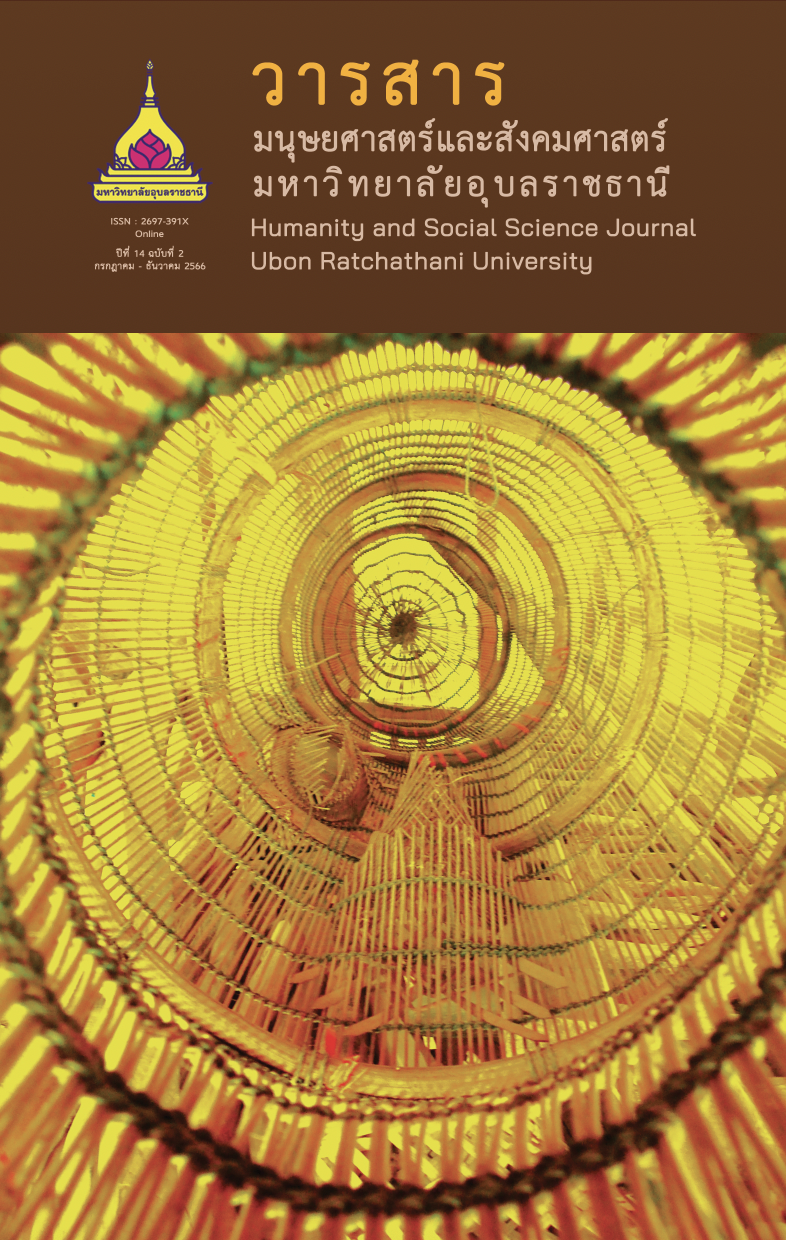อิทธิพลสื่อสังคมที่มีต่อผลการดำเนินงานธุรกิจโรงแรม ในประเทศไทย
Main Article Content
บทคัดย่อ
การวิจัยนี้มีวัตถุประสงค์เพื่อทดสอบความสัมพันธ์ระหว่างผลกระทบของสื่อสังคมที่มีต่อผลการดำเนินงานธุรกิจโรงแรมในประเทศไทย กลุ่มตัวอย่าง คือ ผู้บริหารการตลาดของโรงแรม 4-5 ดาวในประเทศไทย จำนวน 145 ราย ซึ่งใช้เครื่องมือในการวิจัยเป็นแบบสอบถามซึ่งผ่านการตรวจสอบคุณภาพของเครื่องมือด้วยการทดสอบความเที่ยงตรงเชิงเนื้อหาด้วยผู้เชี่ยวชาญและการทดสอบทางสถิติด้วยค่าอำนาจจำแนก มีค่าระหว่าง 0.794 - 0.927 และความเชื่อมั่นด้วยการทดสอบค่าสัมประสิทธิ์แอลฟาของครอนบาค มีค่าระหว่าง 0.826 - 0.918 ข้อมูลที่ได้วิเคราะห์โดยใช้สถิติเชิงพรรณนาและใช้การถดถอยพหุคูณเพื่อทดสอบสมมติฐาน
ผลการทดสอบสมมติฐาน พบว่าสื่อสังคมมีอิทธิพลสำคัญและส่งผลกระทบเชิงบวกต่อภาพลักษณ์กิจการและผลการดำเนินงาน ในทำนองเดียวกันภาพลักษณ์กิจการนำไปสู่ผลการดำเนินงานของกิจการ นอกจากนี้ ผลการวิจัยแสดงให้เห็นว่าภาพลักษณ์กิจการมีอิทธิพลเป็นตัวแปรส่งผ่านบางส่วนระหว่างสื่อสังคมกับผลการดำเนินงานกิจการ
Article Details

อนุญาตภายใต้เงื่อนไข Creative Commons Attribution-NonCommercial-NoDerivatives 4.0 International License.
บทความที่ได้รับการตีพิมพ์เป็นลิขสิทธิ์ของวารสารมนุษยศาสตร์และสังคมศาสตร์ มหาวิทยาลัยอุบลราชธานี
ข้อความที่ปรากฏในบทความแต่ละเรื่องในวารสารวิชาการเล่มนี้เป็นความคิดเห็นส่วนตัวของผู้เขียนแต่ละท่านไม่เกี่ยวข้องกับมหาวิทยาลัยอุบลราชธานี และคณาจารย์ท่านอื่นๆในมหาวิทยาลัยฯ แต่อย่างใด ความรับผิดชอบองค์ประกอบทั้งหมดของบทความแต่ละเรื่องเป็นของผู้เขียนแต่ละท่าน หากมีความผิดพลาดใดๆ ผู้เขียนแต่ละท่านจะรับผิดชอบบทความของตนเองแต่ผู้เดียว
เอกสารอ้างอิง
Aaker, D. A., Kumar, V. & Day, G. S. (2001). Marketing Research. John Wiley Operations Research & Sons, New York, 51(4), 509-518.
Andaç, A., Akbiyuk, F. & Karkar, A. (2016). Customer satisfaction factor in digital content marketing: Isparta Province as an example. International Journal of Social Science Studies, 4(5), 124-135.
Armstrong, J. S. & Overton, T. S. (1977). Estimating nonresponse bias in mail surveys. Journal of Marketing Research, 14(3), 396-402.
Baron, R. M. & Kenny, D. A. (1986). The moderator-mediator variable distinction in social psychological research: Conceptual, strategic, and statistical considerations. Journal of Personality and Social Psychology, 51, 1173-1182.
Bughin, J. (2015). Social media rewired. Journal of Brand Strategy, 4(2), 134-142.
Chatchalermpol, A., Vajropala, L. & Pongsuwan, W. (2019). The Efficiency of Social Media of PTT Company in Corporate Image and Business Aspects.Journal of Humanities and Social Sciences Thonburi University, 13(1), 139-145.
Chon, K. S. & Maier, T. A. (2010). Welcome to Hospitality an introduction (3rd ed.). Canada: Nelson Educations.
Cooper, D. R., Schindler, P. S., & Sun, J. (2006). Business research methods (9th ed). New York: Mcgraw-hill.
GSB Research. (2020). Industry Update. https://www.gsbresearch.or.th/ wp-content/uploads/2020/07/IN_hotel_6_63_detail.pdf. (In Thai)
Djumarno, Sjafar, O. & Djamaluddin, S. (2017). The effect of brand image, product quality, and relationship marketing on customer satisfaction and loyalty. International Journal of Business Marketing and Management, 2(10), 15-24.
Deelers, S. & Ruamyo, Y. (2017). Using Social Networking Applications with Instagram through to the Success of Business in Brand Awareness. E-Journal Science and Technology Silpakorn University, 10(1), 1422-1438. (In Thai)
Hair, J.F., Black, W.C., Babin, B.J. & Anderson, R.E. (2010). Multivariate data analysis: A global perspective (7th ed.). New Jersey: Pearson Prentice Hall.
Kaur, G. (2016). Social Media Marketing. Asian Journal of Multidisciplinary Studies, 4, 34-36.
Kim, J. H. & Hyun, Y. J. (2011). A model to investigate the influence of marketing mix efforts and corporate image on brand equity. Industrial Marketing Managemen, 40(3), 424-438.
Kim, W. G., Li, J. J. & Brymer, R. A. (2016). The impact of social media reviews on restaurant performance: The moderating role of excellence certificate. International Journal of Hospitality Management, 55, 41-51.
Laksamana, P. (2020). I will always follow you: Exploring the role of customer relationship social media marketing. International Review of Management and Marketing, 10(3), 22-28.
Lamberton, C., & Stephen, A. T. (2016). A thematic exploration of digital, social media, and mobile marketing: Research evolution from 2000 to 2015 and an agenda for future inquiry. Journal of Marketing, 80(6), 146-172.
Lunkam, P. (2021, February 24). Industry outlook 2021-2023: Hotel Industry. https://www.krungsri.com/en/research/industry/industry-outlook/ services/hotels/io/io-hotel-21 (In Thai)
Ministry of Tourism and Sports. (2020). Thailand hotel standard. https://www.mots.go.th/news-view.php?nid =12937. (In Thai)
Mohamed, E. A. & Nahas, T. E. (2013). The impact of corporate image and reputation on service quality, customer satisfaction and customer loyalty: Testing the mediating role. Case analysis in and international service company. The Business & Management Review, 3(2), 177-196.
Phillips, M. (2015). Digital technology integration. In Teaching and digital technologies: Big issues and critical questions. 318-331.
Sangkaworn, C. & Mujtaba, B. G. (2012). Marketing practices of hotels and resorts in Chiang Mai: A study of products, pricing, and promotional practices. Journal of Management and Marketing Research, 1-17.
Santos, J.B. & Brito, L.A. (2012). Towards a Subjective Measurement Model for Firm Performance. Brazilian Administration review, 9(special issue), 95-117.
Tajvidi, R. & Karami, A. (2017). The effect of social media on firm performance. Computers in Human Behavior, 115, 1-10.
Thai Hotels Association. (2020). Member List. http://www.thaihotels.org/ 16750708/memberlist. (In Thai)
Treepojana, P., Inthasang, C. & Thiamjit, P. (2020). The Influence of social media on customer satisfaction of the Saveone market, Nakhon Ratchasima. Journal of Liberal Arts and Management Science Kasetsart University, 7(1), 1-12. (In Thai)


